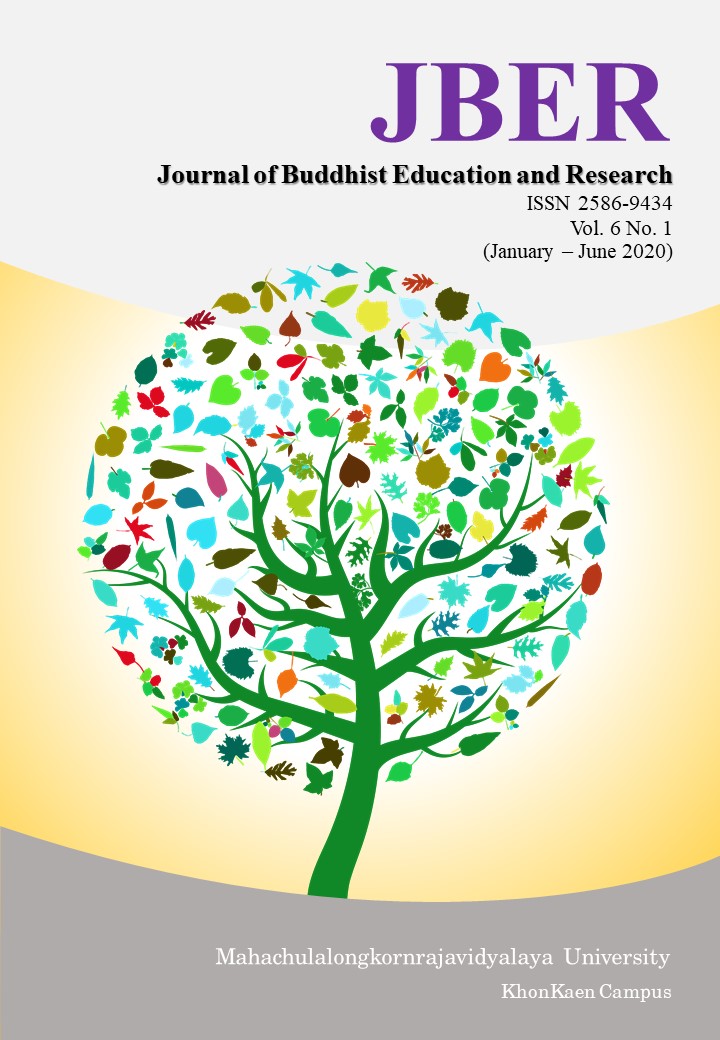BUDDHISM: THE CONTRIBUTION TO SOCIO-ECONOMY SUSTAINABLE DEVELOPMENT
Keywords:
Buddhism, Contribution, Socio-economy: Sustainable Development.Abstract
This paper has the aims to explain about the contribution of Buddhism for socio-economy sustainable development. Sustainable development has been a matter of discussion in development practices and theories for a long time. Since the industrial revolution, development has mainly focused on economic progress in consumption, production, and industrial growth together with technological advancement. Every society has a particular world view that reflects their people’s values, especially their values concerning how their socio-economy should function. The world view of western societies has typically reflected to a considerable extent the principles and concepts of mainstream of socio-economy. In recent years, an alternative to mainstream of Buddha’ teaching for socio-economy sustainable development has been increasingly discussed. In light of the very difficult problems that we are facing in the world, adopting the values and perspectives of Buddhist principles can be expected to do much more to overcome large scale of socio-economic dysfunctions and improve societal well-being than can be expected from utilizing the world views of industrial capitalist economy.
References
Abeydeera,s. (2016). Buddhism sustainability and organizational practice. Journal of Cooperate Citizenship.
Bodhi, Bhikkhu. (2000). Facing the Future: Four Essays on Buddhism and Society. Kandy, Sri Lanka: Buddhist Publication Society.
Daniel, PL. (2007). Buddhism and The Transformation to sustainable Economy: Society and Economy. 29(2).
Daniels, Peter L. (2010). Part 2. “Climate Change, Economics and Buddhism: An Integrated Environmental Analysis Framework,” Ecological Economic.
Daniel, P.L. ( 2011). Buddhism and sustainable consumption. Ethical principles and Economic transformation-A Buddhist Approach. Springer press. New York.
Friedman, Milton.( 2002). Capitalism and Freedom. Original edition, 1962. Chicago: University of Chicago Press..
James, S.P.( 2004). Zen Buddhist and Environmental ethics. Hamshire, United Kingdom: Ashgate.
J.H.Mittleman.( 1998). Utilitarian Ethic out from Underdevelopment, the perspective for the third world. Macillan. Lodon.
Johansen,B.P. & Gopalakrishna.( 2006). A Buddhist view of adult learning in the workplace. Advance in Developing Human resource.
Lamberton, G.( 2005). Sustainable Sufficiency An internally consistent version of sustainability. Social Sustainability. 53(1).
Mukesh kumar Verma. (2019). Buddhist Way of Sustainable Development: Theory and Practice. Retrieved from http://www.undv2019vietnam .com/Subtheme-05/en/.Accessed on 16th March 2020.
Muyzenberge,L.( 2011). Leadership the Buddhist Way: Ethical principles and economy transformation: A Buddhist Approach. Springer press, New York.
Magnuson, Joel.( 2017). From Greed to Wellbeing: A Buddhist Approach to Resolving Our Economic and Financial Crises. Chicago: Policy Press.
Nhat Hanh, Thich. (1991). Old Path White Clouds: Walking in the Footsteps of the Buddha. Berkeley, CA: Parallax Press.
Payutto, P. A. (1998). Buddhist Economics: A Middle Way for the Market. Bangkok, Thailand : Buddhadhamma Foundation.
Paterson, B.(2006). Ethic for Wildlife conservation: overcoming the human nature dualism. Bioscience. 56(2).
PhraRajavaramuni (Payutto). (1987). Freedom, Individual and Society’ Logos, Vol. 26 No.1, Bangkok, Thailand.
Prayukvong, W.,& Rees.( 2010). A Buddhist Economic Approach to Employee Volunteer program. Journal of Corporate Citizenship, 38(2).
Pual A Baran.( 1985). The political Economy and Growth. Monthly press Inc. New York.
Rand, Ayn. (1964). The Virtue of Selfishness. x. New York: New American Library.
Sandel, Michael J. (1998). “What Money Can’t Buy: the Moral Limits of Markets”. Tanner Lectures on Human Values, Brasenose College.Oxford.





